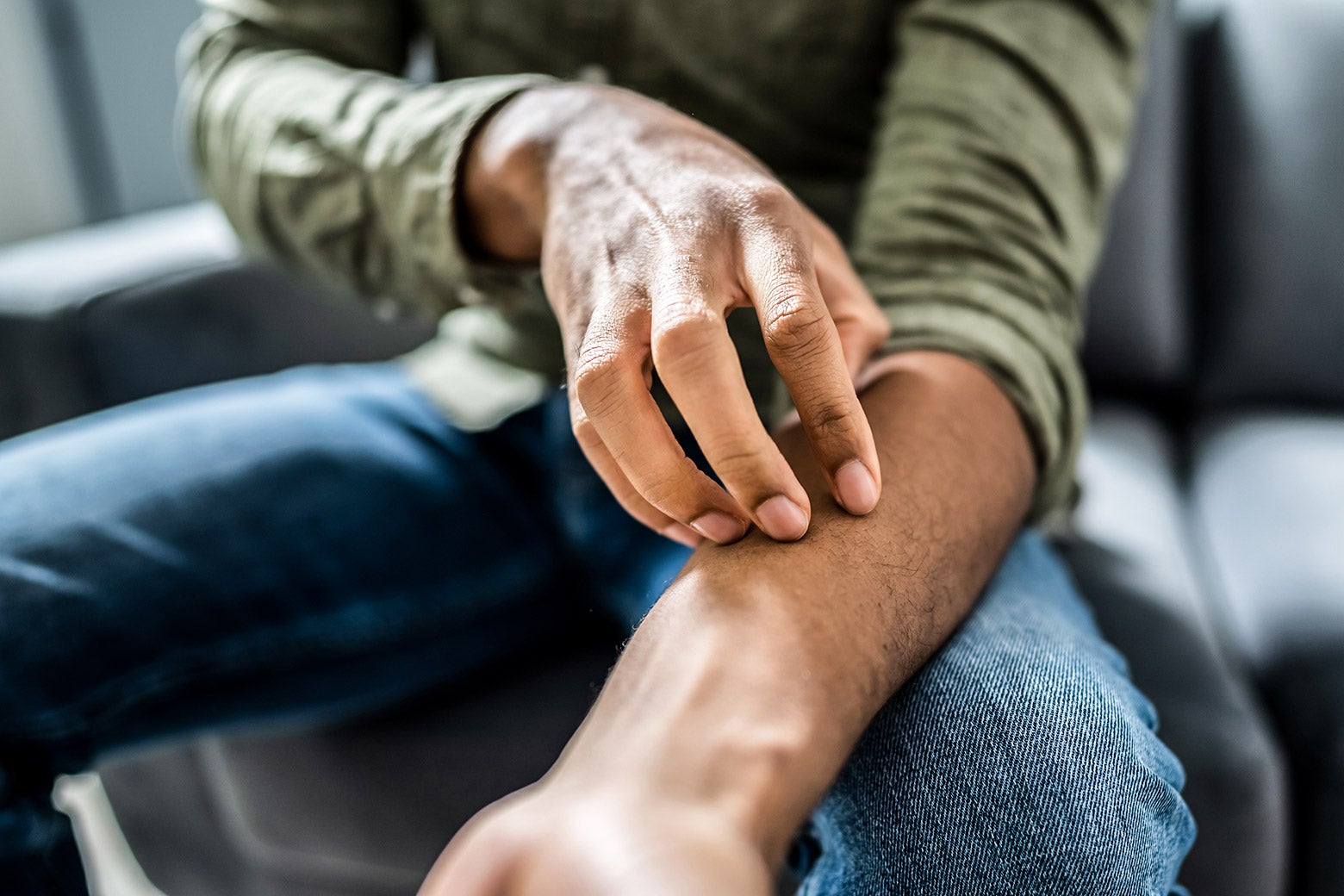This is Explainer, a column that answers questions we all have (or should have).
Anyone with skin knows the feeling of having a bad itch that won’t go away. Whether it’s a mosquito bite, hives, or just a mystery lump, you can’t stop scratching. It may feel good in the moment, but the feeling won’t go away. It’s a perceptual cycle of itch-and-scratch, but why?
Itchiness itself can come from a number of things. Typical culprits include bug bites, allergic reactions, skin conditions, even itchy sweaters. Sometimes, itches can tell us something important: Brian S. Kim, a professor of dermatology at Mount Sinai, likens it to a barometer, as it tells people that they’re not well in a very subtle way. “If your kidney fails, your liver fails, your bone marrow fails,” he notes, “oftentimes itch is a common symptom.” (There’s also such a thing as a chronic itch, which is a whole other issue.)
There are some treatments for itching, at least the acute kind. The majority of acute itches are mediated by a chemical called histamine, which is an important part of the body’s immune response. Classic brand names like Benadryl, Claritin, Allegra, and Zyrtec are antihistamines, which can be used to treat, or lessen, that histamine reaction and thus the itch. There are also topical creams you can apply to the site of itches—nonprescription corticosteroids sometimes can do the trick, as can calamine, hydrocortisone, creams with menthol, aloe vera, and sarna (pramoxine).
Despite these options, many, including yours truly, try to alleviate the feeling of the itch by scratching it, which in turn makes it itch more—a vicious cycle that can feel impossible to overcome.
There is a good reason we itch and scratch. Lots of things can colonize the skin––scabies, mites, and other creepy-crawlies—and cause it to itch. The itch-scratch cycle is likely an evolutionary reflex developed to expel these unwanted visitors, says Kim. There are better ways to deal with scabies (and many more things than critters that can cause itching), but itching and scratching persists.
And a little scratching is fine and healthy; it’s a problem when it becomes more extreme. “You further damage the skin and activate the nerve fibers so it causes the itch-scratch cycle,” Gil Yosipovitch, the director of the Miami Itch Center, says. “You get that immediate relief, but it amplifies your sensation. The more you itch, the more you scratch it.”
Part of this is because of the intimate relationship between pain and itch. A little pain can inhibit the sensation of itching, making for an interesting feedback loop. That’s what scratching is, essentially—inflicting a tiny bit of pain on your skin.
“Normally, pain is not something you induce,” explains Diana Bautista, a Howard Hughes Medical Institute researcher at the University of California, Berkeley. “That sensation of pain is altered when you have that itch on your skin. You scratch until you bleed and get that relief, at least temporarily.”
Part of this likely has to do with serotonin. In 2014 Zhou-Feng Chen, then a researcher at Washington University in St. Louis, published a study that suggested that the neurotransmitter plays a role in the cycle. “When the brain senses pain, the brain says, ‘Hey this is not good,’ ” Chen explains. It will, accordingly, produce serotonin as a way to inhibit the pain—and you’ll feel a little better, briefly. The neurotransmitter will also activate itch neurons at the itch site, making the itchy feeling worse.
The itch signal also makes its way to a higher level: the brain. “What we’ve seen in our studies is scratching activates the reward system of the brain,” says Yosipovitch. “The more you scratch, the more you feel pleasure.”
Scratching isn’t purely biological––there is also a social aspect to it. “If you see someone scratching, you will also subconsciously scratch,” Kim says. Throughout the course of our interview, we both reflexively scratched our faces and other parts of our bodies.
If you’re really itchy, simply refraining from scratching is easier said than done. “I don’t think it’s helpful to tell people not to scratch because it creates a lot of anxiety,” Kim says.
There are some efforts to develop therapeutics that could target some of the neural pathways involved in itching. Chen, who is now based out of the Shenzhen Bay Laboratory in China, is interested in exploring drugs that block receptors involved with itch. Yosipovitch also says there’s potential for drugs—or technology—that inhibit the sensation of itching through neural mechanisms.
“If you could mimic that same perception without causing the damage [or] if there was a device that induces the same feeling of scratching that would be long term, our patients would be very happy,” he suggests.
Bautista proposes a more DIY approach, drawing from her own experience.
“I have a lot of allergies and had eczema as a kid,” she explains. “Putting on cold compresses really helped. You can get that same release by using an ice pack or taking a really hot shower. Warm shower makes it worse, but if you can stand really hot, intense heat, that’s another way.” Basically: If you’re tired of scratching an itch, find another way to interrupt the sensation.
